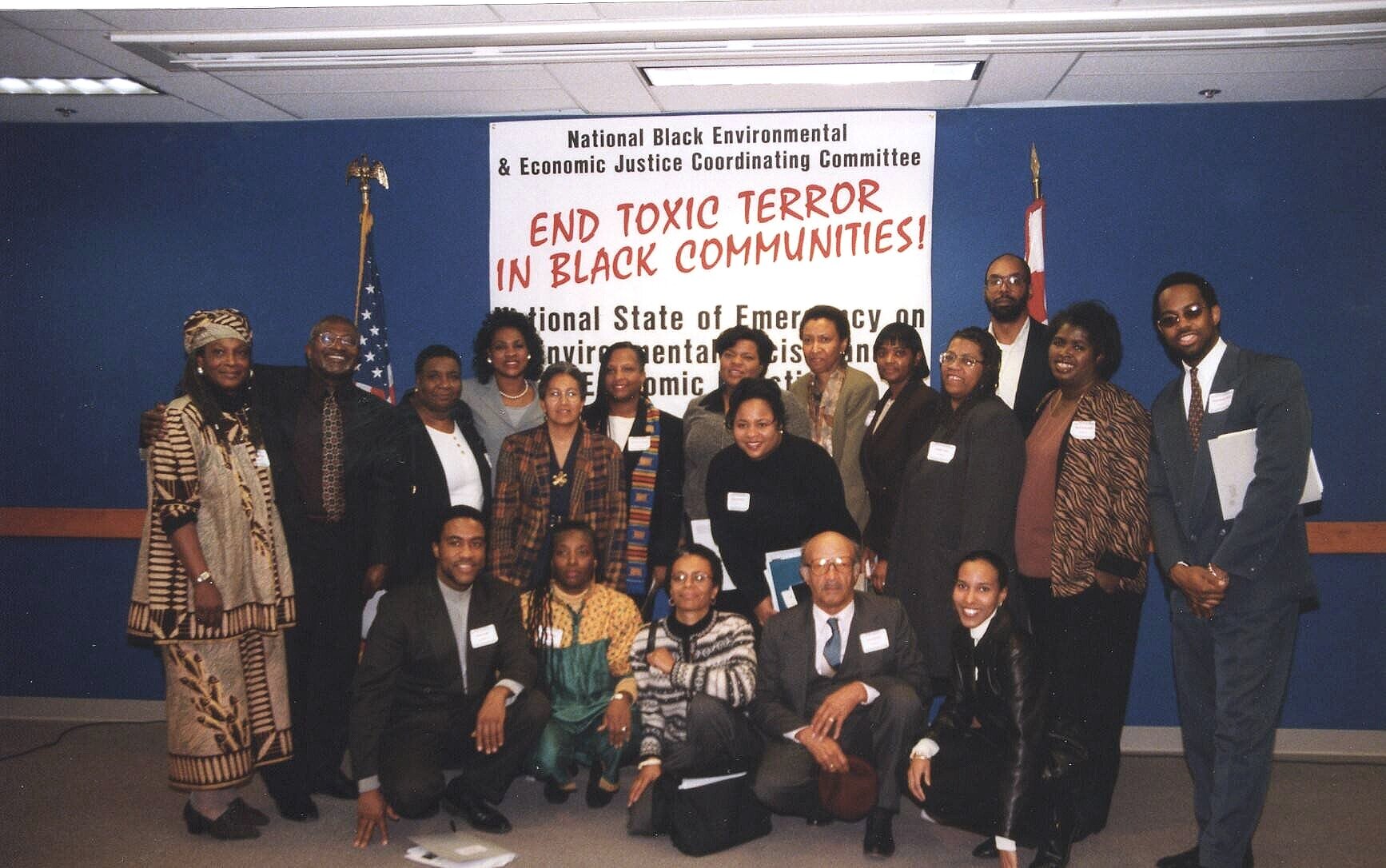OUR HISTORY
The National Black Environmental Justice Network was formed in December 1999 during an emergency gathering of African American leaders, at the first national gathering of nearly 300 Black grassroots, environmental and economic justice activists. The gathering also included youth, labor, health, and religious organizations, attorneys, academicians and a whole host of other professional groups from 33 states. We came together in New Orleans, Louisiana to map out strategies to address environmental and health disparities in Black American communities.
The meeting resulted in the development of a national action plan as well as an organizational structure to facilitate the implementation of the plan. The official coordinating body for implementation for the action plan was named the Interim National 2 Black Environmental and Economic Justice Coordinating Committee. The National Black Environmental Justice Network is a national coalition of environmental justice organizations and activists of African descent.
The NBEJN is a national coalition of environmental justice organizations and activists of African descent. From 1999 to 2001, the coalition was known as the Interim National Black Environmental and Economic Justice Coordinating Committee (INBEEJCC).
Within this structure, a committee named the Interim Facilitation Team (IFT), composed of regional grassroots representatives and other individuals was created and appointed by attendees during the December gathering for the purpose of guiding the work in the action plan both administratively and politically.
NBEJN fosters the environmental justice leadership of the future. Our youth, young adults and students are essential component for lasting change and played a vital role in creating a sustainable movement. NBEJN history is a history of nurturing and positioning the next generations for key leadership positions now.
Since its inception, NBEJN has pursued a proactive strategy for organizing a broad- based Black community to meet the environmental and health threats that disproportionately affect African Americans and other people of color.
To achieve this goal, our strategy continues to fight for an end to racially discriminatory environmental decision-making by raising broader awareness within the Black community of the connection between pollution and poor health, and promoting sustainable communities by advancing clean production technologies, pollution strategies and economic alternatives. To carry out our work, we formed committees that focus on issue areas that were identified as priorities during the December 1999 national gathering, and were further developed during the first NBEJN-IFT meeting in Jacksonville, Florida in February 2000.
Those committees were as follows:
Equal Protection
International Human Rights and Environmental Justice
Federal Facilities
Outreach/Community Support
Clean Production and Sustainable Development
Youth Leadership Development
Super-fund Relocation and Land Loss
Health
NBEJN continues to grow, mature, and expand its network of organizations and individuals to address critical environmental, racial and economic justice and health issues affecting Black Americans and persons of African descent around the world.


